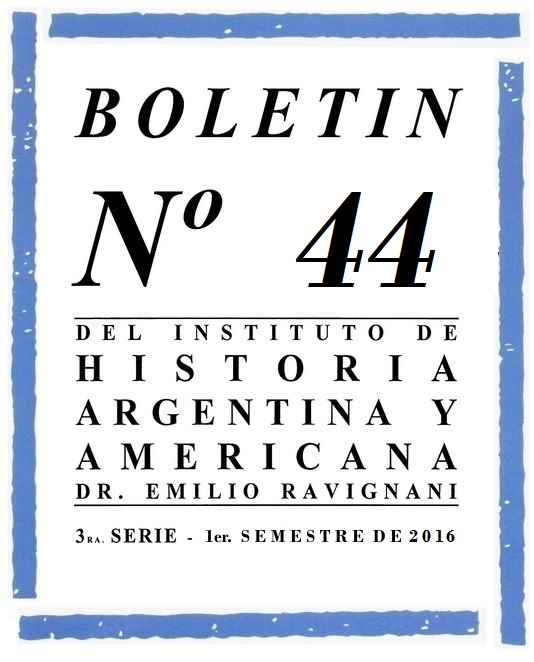Oligarchy, Aristocracy and Nation. The Argentina of the 1930’s according to Marcelo T. de Alvear
Abstract
The article examines the views of Marcelo T. de Alvear about Argentina in the 1930s. For this, the analysis focuses on a topic to which Alvear appealed frequently: the country was characterized by a conflict between an oligarchy and the nation. This diagnosis was not original from Alvear, but characteristic of the period. Therefore, the article discusses the singular reasons and particular meanings that it had in Alvear. In that sense, the article highlights two factors. The first one, is that Alvear appealed to that topic, which was familiar to the political traditions of the Unión Cívica Radical (UCR), to legitimate his action as the president of this political party in the 1930 ́s. In second place, the article argues that the notion of “oligarchy”, was a result of a particular evaluation of the social group to which Alvear belonged: the Argentine social elite. In the conclusions, the article proposes, as from the former exploration, what were the fundamental problems of Argentina at his time according to Alvear, and what relationship could exist between this diagnosis and the paths of his public career.Downloads
The copyright is transferred to the Boletín, but the authors may retrieve them and reproduce their work in other media or formats by means of a written request to the Editorial Committee. In such cases, the Boletín will be cited as the first publication of the work.
The works are licensed under a Creative Commons Attribution-NonCommercial 4.0 International License, which allows others to share the work with an acknowledgment of their authorship and initial publication in this journal.
Also, by written request to the Editorial Committee of the Boletín, the authors may separately establish additional agreements for the non-exclusive distribution of the version of the work published in this journal (for example, placing it in an institutional repository or publishing it in a book), with an acknowledgement of its initial publication here. No commercial uses are allowed.



















